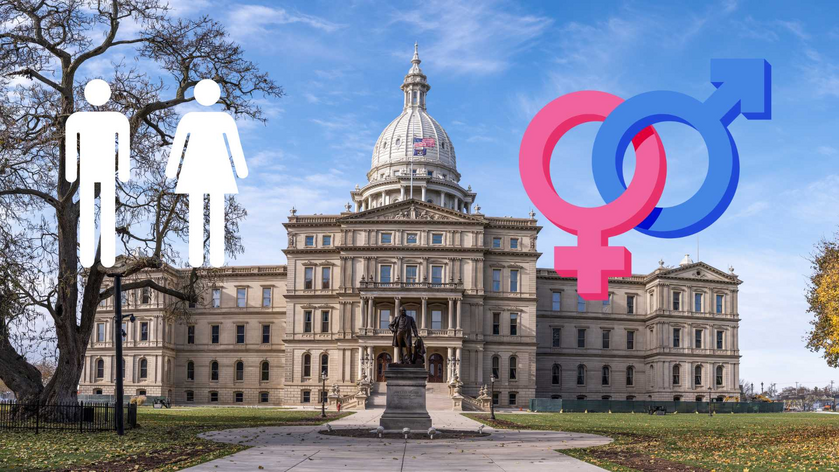LANSING, Mich - Two days after the election, Democrats in the Michigan Legislature moved quickly to propose new bills, aiming to push them through before the newly elected Republican majority in the House takes office in January.
Democrat Senators Geiss and Chang introduced Senate Bill 1066. This bill proposes changes to the Elliott-Larsen Civil Rights Act (ELCRA), Michigan’s cornerstone anti-discrimination law when it comes to the definition of the word sex.
The proposed law would define "sex" as not limiting to someone being a man or woman. It also means being pregnant, having a baby, breastfeeding, or dealing with related medical things. The legislation is to make sure people who are in these situations are treated fairly.
Support my independent journalism by becoming a paid subscriber to my Locals community. Click become a supporter below. It's $5 a month, you can quit at anytime. Support my mission.
Key Provisions of the Bill:
Workplace Protections: Employers with one or more employees would be required to treat pregnant or nursing individuals fairly. This means that firing, demoting, or otherwise discriminating against someone for pregnancy or related medical conditions would be unlawful. While this is seen as a necessary measure to protect employees, some critics argue it could burden small businesses already grappling with complex regulations.
Public Accommodations: The bill also clarifies that public places, including restaurants, stores, and recreational venues, cannot deny services or treat individuals unfairly due to pregnancy or breastfeeding. Supporters say this change ensures equal treatment in public life, but opponents warn that it might impose additional challenges for business owners who must comply with these regulations.
Redefining “Sex”: One of the most debated elements of Senate Bill 1066 is its redefinition of “sex” in the context of discrimination. The bill specifies that “sex” includes pregnancy, childbirth, breastfeeding, and related medical conditions. This shift raises moral and societal questions about the broadening interpretation of protected categories. Supporters claim this change is necessary to close gaps in existing laws and reflect modern understandings of discrimination. However, conservatives argue that changing the definition of “sex” sets a precedent for government interference in how words and laws are interpreted, which could extend into future legal and social debates.
The Moral Debate
From a conservative perspective, this redefinition sparks a deeper discussion about the role of government in shaping societal norms and moral standards. Expanding the meaning of “sex” could be seen as a push toward redefining foundational concepts that have long been understood in more straightforward terms. Critics argue that laws should protect individuals without shifting established definitions that can open the door to further changes, potentially eroding traditional values.
This moral concern is compounded by the potential for this change to impact religious and private institutions. For example, if “sex” includes conditions like pregnancy and breastfeeding, would private organizations be forced to adjust their policies to align with this broader definition, even if it conflicts with their beliefs? These questions highlight the tension between protecting individual rights and maintaining the freedom for organizations to uphold their values.
Government Overreach or Necessary Protection?
While many agree that discrimination against pregnant or nursing individuals should not be tolerated, there is debate over how far the government should go to enforce these protections. Some conservatives worry that this bill adds another layer of regulation that could lead to excessive government control over private businesses. This is especially concerning for small business owners who already face challenges complying with employment and public accommodation laws.
Existing Protections vs. New Mandates
Critics also point out that existing federal and state laws already provide substantial protections for pregnant and nursing individuals. The Pregnancy Discrimination Act and family leave laws, for example, are designed to ensure fair treatment in the workplace. Opponents of Senate Bill 1066 question whether additional regulations are needed or if they serve as a means to expand government influence under the guise of social progress.
What’s Next?
Senate Bill No. 1066 is currently under review by the Committee on Housing and Human Services. If passed, Michigan’s anti-discrimination law would see expanded definitions and clearer rules for protecting pregnant and nursing individuals. This is a significant development, as it raises important questions about where the balance lies between protecting individual rights and maintaining business autonomy and personal moral beliefs.




















